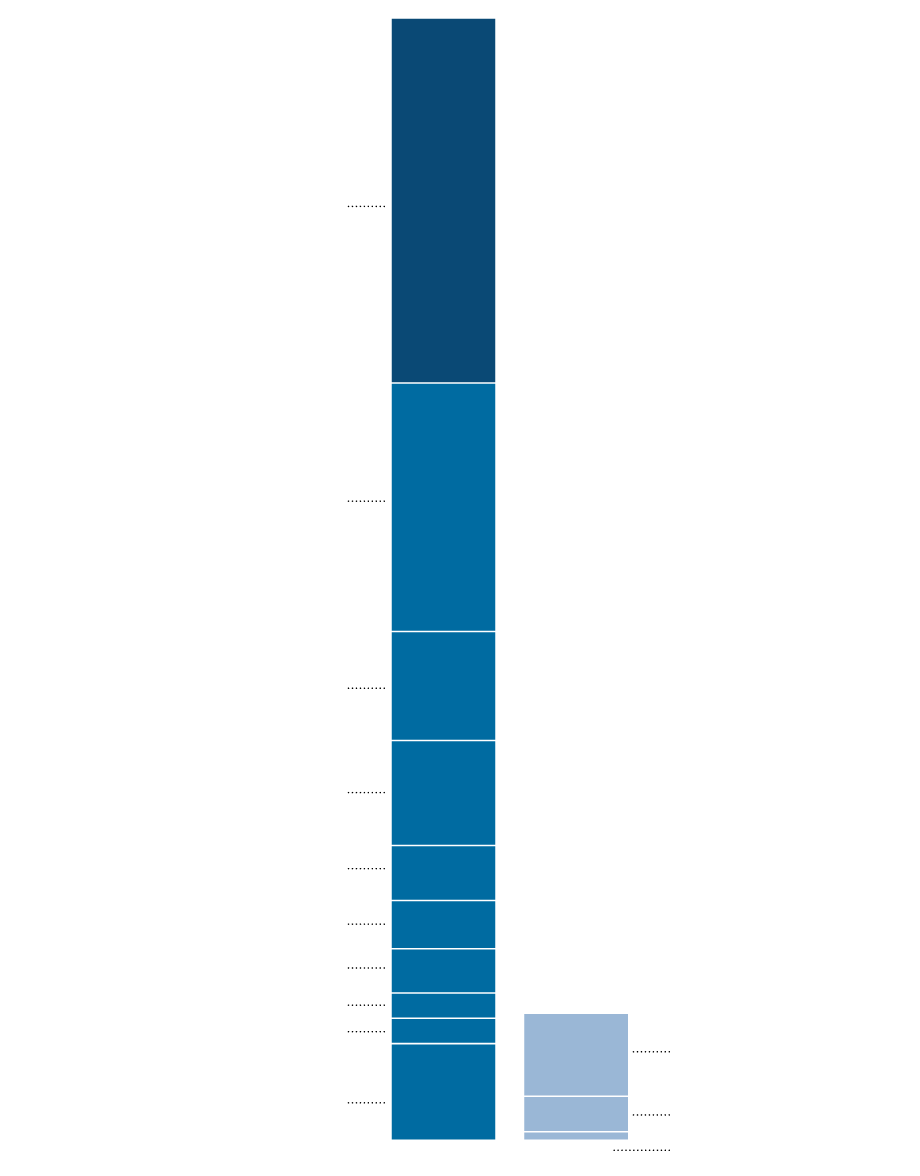Can You Negotiate After A 'Best And Final' Job Offer? A Practical Guide

Table of Contents
Understanding the "Best and Final" Offer
What it Typically Means
From the employer's perspective, a "best and final" offer is often a tactic to conclude negotiations. They may believe they've presented their most competitive package, hoping to avoid further haggling. It's a way to streamline the hiring process and finalize the deal. However, it doesn't always mean absolute finality.
When it's (Usually) Not Final
While sometimes genuinely final, a "best and final" offer can be negotiable under certain circumstances. A strong market demand for your specific skills, a superior competing offer from another company, or a critical oversight by the employer in their initial offer can create leverage for further negotiation.
- Situations where a "best and final" offer is truly final: If the company is facing budget constraints, the hiring manager lacks authority to increase the offer, or the company has a strict no-negotiation policy.
- Signs that the employer might be open to further negotiation: A hesitant delivery of the "best and final" statement, a willingness to discuss specific aspects of the offer, or a positive and collaborative tone throughout the process.
- The importance of understanding the company culture and the hiring manager's style: Some companies are more flexible than others. Understanding the company's culture and the hiring manager’s communication style can help you gauge the possibility of further negotiation.
Strategies for Negotiating After a "Best and Final" Offer
Assessing Your Leverage
Before attempting to negotiate, analyze your strengths. Do you possess highly sought-after skills? Do you have a competing job offer? Have you researched the market value for your role and experience? Your leverage depends on your ability to demonstrate your worth and the value you bring.
Crafting a Thoughtful Counteroffer
Don't just focus on salary. A comprehensive counteroffer addresses multiple aspects. Consider:
- Increased salary: Justify your request with market data.
- Improved benefits package: Negotiate health insurance contributions, retirement plan matching, or paid time off.
- Signing bonus: A one-time payment can significantly improve the overall compensation package.
- Performance-based incentives: Explore opportunities for bonuses or commissions tied to performance metrics.
Communicating Professionally
Express your gratitude for the offer, but firmly state your needs. Highlight how your skills and experience exceed expectations and justify a higher compensation. Use respectful and professional language throughout the process.
- Examples of strong counteroffer points focusing on specific benefits: "Based on my research, the market rate for this role with my experience is X. Considering my skills in Y and Z, I would appreciate it if we could revisit the salary to reflect this." "An increase in vacation time would significantly improve the overall compensation package and allow me to better manage work-life balance."
- Sample phrases to use when communicating a counteroffer respectfully: "I appreciate you extending this offer. After careful consideration, I would like to propose a slight adjustment to the compensation package." "Thank you for your time and consideration. I am very interested in this opportunity, and I believe a slightly adjusted compensation would allow me to fully commit to this role."
- Steps to take if your counteroffer is rejected: Reflect on the entire package, the company culture, and your long-term goals. Be prepared to walk away if the terms aren't acceptable.
Knowing When to Walk Away
Evaluating the Entire Package
Don't solely focus on salary. Consider the total compensation—benefits, vacation time, potential for growth, and work-life balance. Weigh this against your needs and your market value. Is the overall package competitive enough to justify accepting the role?
Considering Your Long-Term Goals
Does this opportunity align with your career aspirations? Will it help you reach your long-term professional goals? Sometimes, a slightly lower salary is acceptable if the long-term growth potential or the overall work environment is significantly better.
- Factors to consider when deciding whether to accept or decline a job offer: Salary, benefits, company culture, growth opportunities, work-life balance, commute, and overall job satisfaction.
- The importance of self-reflection and setting personal boundaries: Knowing your worth and what you're willing to compromise on is crucial. Don't undervalue yourself.
- Alternative strategies if you decide not to accept the offer: Continue your job search, network with contacts, refine your resume and cover letter, and prepare for future job interviews.
Common Mistakes to Avoid
Becoming Emotional
Maintain professionalism throughout the negotiation. Avoid emotional outbursts or impulsive decisions. A calm and rational approach is more likely to lead to a positive outcome.
Underestimating Your Worth
Research your market value. Know your skills, experience, and the demand for those skills. Don't undervalue yourself during negotiation. Confidence is key.
Ignoring the "Bigger Picture"
Consider the entire compensation package, including benefits, perks, and the overall work environment. Don't solely focus on salary—the entire package matters.
- Examples of emotional responses to avoid during salary negotiations: Becoming defensive, raising your voice, making threats, or displaying frustration.
- Tips for accurately researching your market value for your skillset: Use online salary calculators, consult industry reports, network with professionals in your field, and utilize LinkedIn Salary insights.
- Consequences of neglecting non-monetary aspects of a job offer: Accepting a job with a poor work-life balance, inadequate benefits, or a toxic work environment can negatively impact your overall well-being and career satisfaction.
Conclusion
Receiving a "best and final" job offer doesn't automatically end negotiation. By carefully assessing your leverage, crafting a thoughtful counteroffer, and knowing when to walk away, you significantly improve your chances of securing the compensation and benefits you deserve. Remember to always maintain a professional and respectful approach.
Don't let a seemingly final job offer discourage you. Learn to effectively negotiate your job offer, even after hearing "best and final." Master the art of salary negotiation and secure the compensation you deserve. Use this guide to successfully negotiate your next job offer!

Featured Posts
-
 Triler Vo Finaleto Na Ln Shpani A Shampion Po Penali Protiv Khrvatska
May 23, 2025
Triler Vo Finaleto Na Ln Shpani A Shampion Po Penali Protiv Khrvatska
May 23, 2025 -
 Are Museum Programs History After Trumps Budget Reductions
May 23, 2025
Are Museum Programs History After Trumps Budget Reductions
May 23, 2025 -
 Bank Of Canada Rate Cuts Desjardins Predicts Three More
May 23, 2025
Bank Of Canada Rate Cuts Desjardins Predicts Three More
May 23, 2025 -
 Jony Ives Ai Company Potential Open Ai Acquisition Explained
May 23, 2025
Jony Ives Ai Company Potential Open Ai Acquisition Explained
May 23, 2025 -
 The 10 Most Disturbing Arthouse Horror Movies
May 23, 2025
The 10 Most Disturbing Arthouse Horror Movies
May 23, 2025
Latest Posts
-
 Jonathan Groffs Just In Time Opening A Star Studded Affair
May 23, 2025
Jonathan Groffs Just In Time Opening A Star Studded Affair
May 23, 2025 -
 Jonathan Groff Could He Win A Tony Award For Just In Time
May 23, 2025
Jonathan Groff Could He Win A Tony Award For Just In Time
May 23, 2025 -
 Will Jonathan Groff Make Tony Awards History With Just In Time
May 23, 2025
Will Jonathan Groff Make Tony Awards History With Just In Time
May 23, 2025 -
 Jonathan Groffs Just In Time Performance A Tony Awards Contender
May 23, 2025
Jonathan Groffs Just In Time Performance A Tony Awards Contender
May 23, 2025 -
 Could Jonathan Groff Win A Tony Award For Just In Time
May 23, 2025
Could Jonathan Groff Win A Tony Award For Just In Time
May 23, 2025
